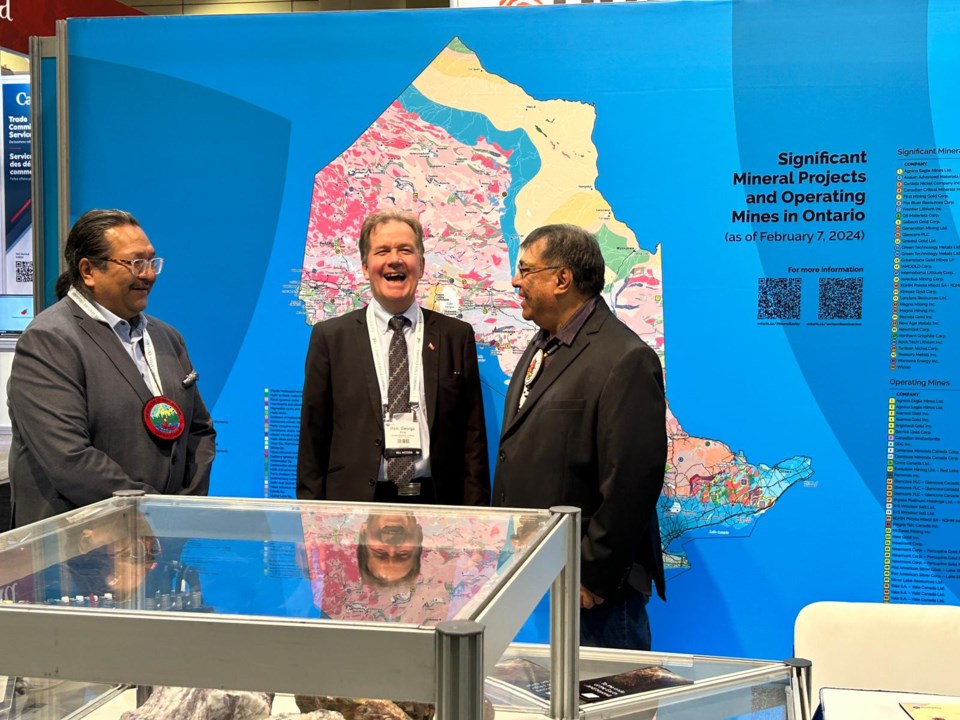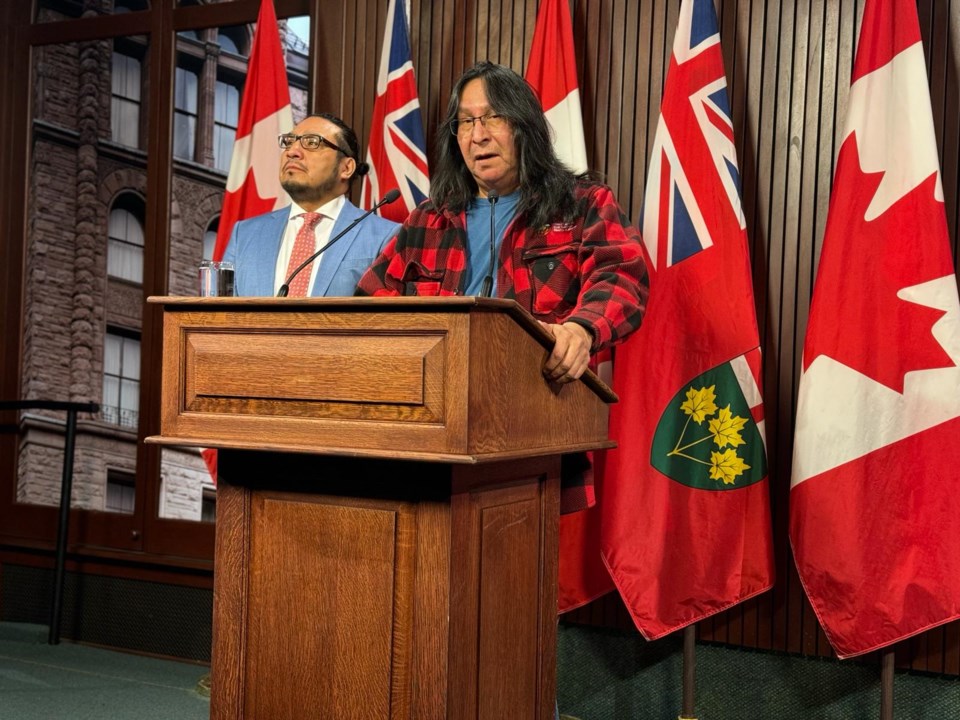EDITOR’S NOTE: This article originally appeared on The Trillium, a Village Media website devoted to covering provincial politics at Queen’s Park.
Four subway stops away from each other, three First Nations highlighted two very different experiences.
At Queen's Park Tuesday morning, Chief of Cat Lake First Nation Russell Wesley held a press conference to draw attention to an injunction his community has secured to prevent the commencement of road construction for a First Mining Gold project in its territory.
The community has initiated an Anishinaabe-led impact assessment on the project, which it expects will take a year, but the government wouldn't wait and authorized the mining company to construct the road. Cat Lake First Nation won a temporary injunction to halt the project while its case alleging the government failed in its duty to consult the First Nation can be heard.
It's not that the community is against mining, Wesley said. The community is supportive of other projects — but this one will take time to consider because it would drain a trout-rich lake in the territory and the legislated environmental assessment process, which delegates the duty to consult to the company, doesn't cut it, he said.
"It's just not conducive to what we deem as consultation," he said. "It's all paper emails and checkboxes."
The current system is “basically unresponsive” to most First Nations that often don't have enough time or resources to respond to a "deluge" of technical information, he said.
Meanwhile, downtown, Minister of Mines George Pirie, flanked by the chiefs of Marten Falls and Webequie First Nations at the world's largest mining conference, was all smiles as he announced the next step in building a road to the Ring of Fire, a 5,000-square-kilometre region in northern Ontario said to be rich in minerals needed to build electric vehicles and deeply important to Ontario's resource extraction plans.
The agreement commits the province to supporting projects to prepare the First Nations for a mining boom. Projects like health and training facilities, recreation centres, commercial buildings and labour force programs will be eligible for funding, Pirie said at the Prospectors & Developers Association of Canada (PDAC) annual conference in Toronto.
"The community has a vision to prosper from any development in our area," Webequie First Nation Chief Cornelius Wabasse said, adding that he wants to work with government and industry "side-by-side."
"Historically, there were injustices faced by our First Nations with resource development. We seek to chart a new path moving forward, in that any development that happens on our territory, the First Nations will lead," Marten Falls First Nation Chief Bruce Achneepineskum said.
The parties also pledged under the agreement to make decisions together about the construction, ownership and operation of the road network while the First-Nations-led environmental assessments are still ongoing.
"We cannot wait for the EAs to be completed before we start thinking about what the future will look like," Pirie said.

Pirie said he wasn't fazed by the Cat Lake injunction.
"We're fully committed to the duty to consult. I know the chief supports development at the mining project and I'm quite sure this can all be worked out," he said.
Asked if his government may have jeopardized a relationship with a willing partner — the latest in a series of Indigenous protests against the government's mining agenda — Pirie repeated his answer.
"I think this will work out," he said.
Pirie defended Ontario's EA process as "the world's best," noting that the two First Nations are leading the assessments for the Ring of Fire roads.
"And you combine with willing partners that want things to develop, and you can see marvellous things happen," he said.
Achneepineskum said having control over the EA process was important for relationship-building with the province.
"It isn't, 'Here you go. Here's an environment assessment.' We're more or less addressing our concerns (on) Aboriginal and treaty rights, land issues, historical issues, and it's a learning process for sure," he said.
But Achneepineskum said active engagement from government and industry has allayed his concerns.
"So we're comfortable with moving ahead on this process, and I don't see any real issues if the partnership is built on a meaningful relationship that derives benefits to either side and the First Nation, which is what the treaty is all about," he said.
NDP Indigenous and treaty relations critic Sol Mamakwa stood by Wesley during his press conference. Green MPP Aislinn Clancy said her party also supports Cat Lake's injunction.
"Free, prior and informed consent is not a nice-to-have. It’s a need-to-have," she said in a statement.
Liberal MPP John Fraser said the government didn't respect Cat Lake's independence by issuing the permit.
"I think there's a better way to do that, which is to actually have prior consultation, prior informed consent, and not move out and do things without them," he said.
—With files from Jessica Smith Cross




